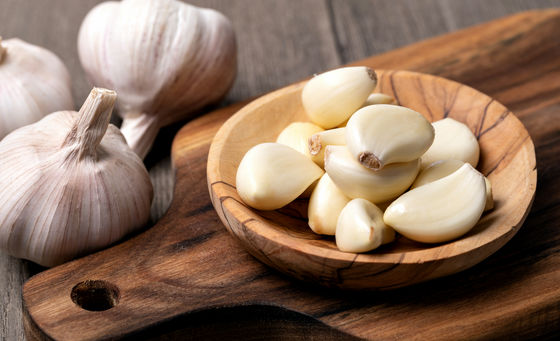Why is garlic used preferentially but ``garlic smell'' is disliked?

Garlic can be used as a topping or flavoring for a variety of dishes, and can also be eaten deliciously grilled in foil or fried whole, so it is a popular ingredient that has some pretty enthusiastic fans. However, while it is used favorably, it is often disliked for the smell of some garlic dishes and bad breath after eating garlic. Professor Sheryl Ballinger of
Why Do We Love Garlic But Hate Garlic Breath? | Live Science
https://www.livescience.com/65509-why-garlic-breath-smells-bad.html

Garlic is one of the oldest known horticultural crops, with mentions of garlic in Egyptian and Indian cultures as early as 5,000 years ago, as well as historical evidence of its use by the Babylonians 4,500 years ago. remains, says Philip Simon of the University of Wisconsin School of Horticulture. In addition, Wilfred Colon, professor and chair of the Department of Chemistry at Rensselaer Polytechnic Institute in New York, explains why garlic has been loved since ancient times, ``The initial appeal of garlic was related to its potential health benefits. There may be, now research shows that the compounds in garlic lower blood pressure and provide antibacterial effects.These benefits make us subconsciously crave garlic. It's possible,' he says.

In the first place, most bad breath caused by eating is caused by decaying leftover food particles that have entered the gaps in the mouth. On the other hand, what is generally referred to as ``bad breath after eating garlic'' occurs when food reaches the stomach and gastric juice breaks down garlic, releasing sulfides as well as vitamins and minerals. caused by a molecule called
Because AMS is a very small molecule, unlike vitamins and minerals that are normally decomposed by gastric juice and then transported to the intestine, AMS slips through the inner wall of the stomach and enters the blood vessels. AMS that enters the blood in this way is taken into the alveoli along with carbon dioxide through gas exchange in the lungs, and is released outside the body in the form of exhalation. As a result, the presence of AMS in the breath results in 'garlicy breath.'

Ballinger says that AMS can maintain its ability to release odors for up to 24 hours in blood vessels. A 2016 paper co-authored by Mr. Ballinger reported that eating apples, lettuce, and peppermint can significantly reduce the concentration of AMS in the blood. This is because the above ingredients contain phenolic compounds that combine with sulfides to increase the size of sulfides, preventing molecules from slipping through the inner wall of the stomach and preventing AMS from dissolving in the blood. increase.
Ballinger also said, ''Garlic breath' doesn't contain anything inherently unpleasant. We simply like it because we're used to the smell of food entering our mouths. However, I am not accustomed to smelling the smell coming out of my mouth, so I just feel uncomfortable.'
Related Posts:







